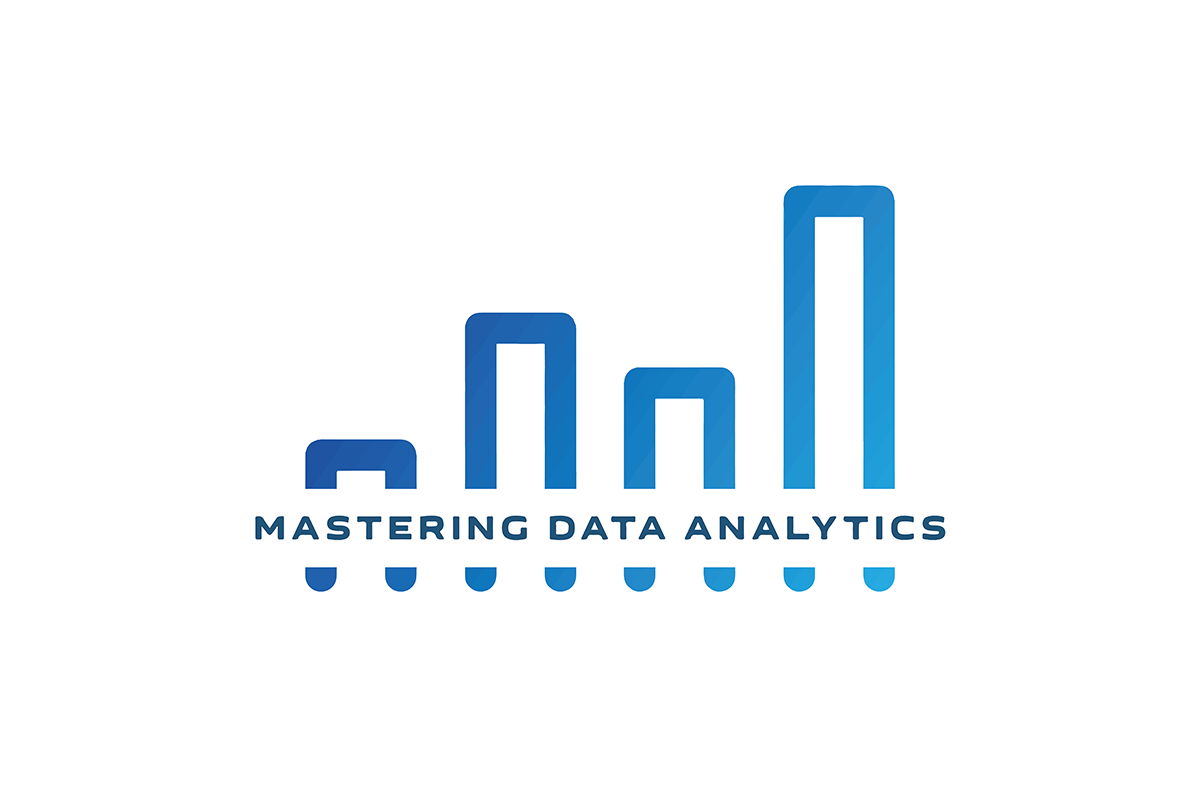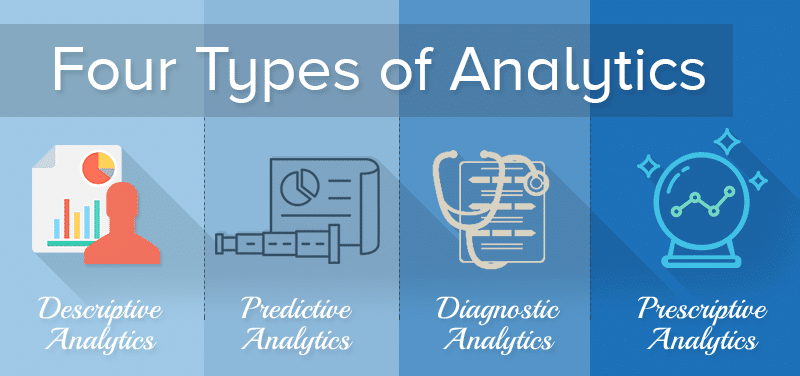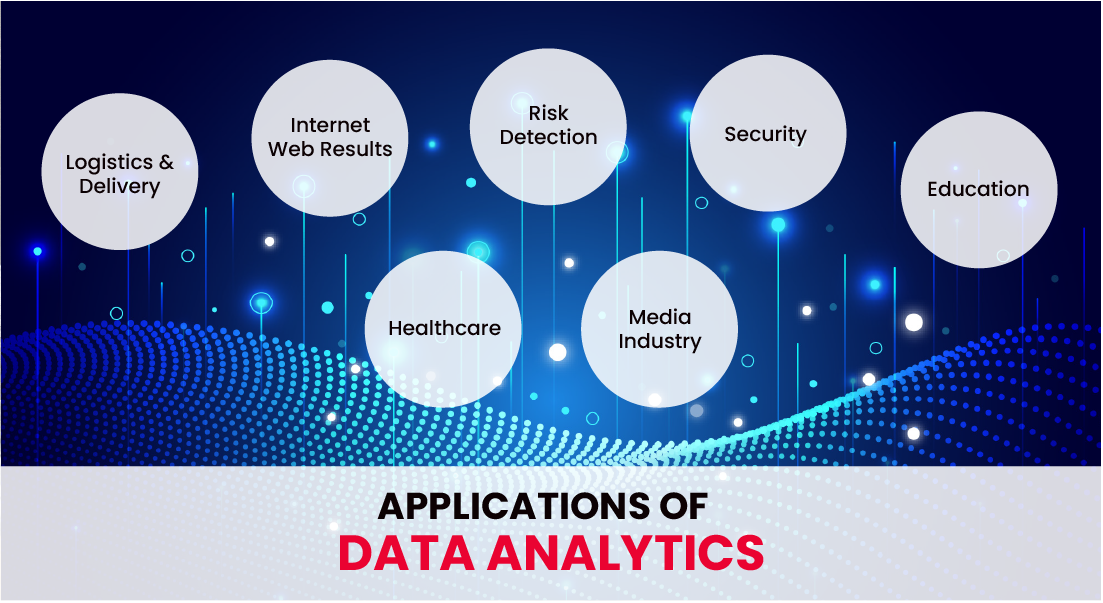In today's fast-paced digital landscape, data analytics is crucial for organizations aiming to make informed decisions and stay ahead of the competition. At DoDev Technology Pvt. Ltd., where we lead in EdTech solutions, understanding data analytics is pivotal for navigating today's complex business environment.
What is Data Analytics?

Data analytics refers to the process of examining raw data to draw conclusions about the information it contains. This iterative process involves cleaning and transforming data, applying various statistical and mathematical techniques, and finally, interpreting the results to derive actionable insights. The insights gained from data analytics help organizations understand trends, make predictions, and ultimately, make informed decisions that drive business growth.
The Four Types of Data Analytics
 Data analytics can be broadly categorized into four types, each
serving a distinct purpose in extracting value from data:
Data analytics can be broadly categorized into four types, each
serving a distinct purpose in extracting value from data:
Descriptive Analytics: This type focuses on summarizing historical data to describe what has happened in the past. It provides foundational insights into trends and patterns, laying the groundwork for deeper analysis.
Diagnostic Analytics: Diagnostic analytics goes a step further by analyzing data to understand why certain events or outcomes occurred. It delves into causal relationships within the data, helping businesses pinpoint the root causes of successes or failures.
Predictive Analytics: Predictive analytics utilizes historical data to forecast future trends and outcomes. By applying statistical models and machine learning algorithms, organizations can anticipate customer behavior, market trends, and potential risks, enabling proactive decision-making.
Prescriptive Analytics: The most advanced form of analytics, prescriptive analytics not only predicts what will happen but also recommends actions to optimize outcomes. It combines data analysis with optimization techniques to provide actionable insights, guiding strategic decision-making processes.
The Importance of Data Analytics in Business
In today's digitally-driven economy, data analytics plays a pivotal role across various facets of business operations:
Enhanced Decision-Making: By leveraging data analytics, organizations can make well-informed decisions based on empirical evidence rather than intuition or guesswork. This data-driven approach minimizes risks and maximizes opportunities for growth.
Improved Operational Efficiency: Analyzing operational data allows businesses to identify inefficiencies, streamline processes, and allocate resources more effectively. This leads to cost savings and increased productivity, contributing to overall organizational efficiency.
Personalized Customer Experiences: Data analytics enables businesses to segment their customer base, understand individual preferences, and personalize marketing efforts accordingly. This targeted approach enhances customer satisfaction and loyalty, driving revenue growth.
Key Techniques and Tools in Data Analytics
To effectively harness the power of data analytics, professionals rely on a variety of techniques and tools:
Techniques: Data mining, statistical analysis, machine learning, and natural language processing are fundamental techniques used to extract meaningful insights from data. Each technique serves a specific purpose, from uncovering hidden patterns to making predictions and recommendations.
Tools: The choice of tools depends on the specific requirements of the analysis. Popular tools include programming languages like Python and R for data manipulation and statistical analysis, data visualization tools such as Tableau for presenting insights visually, and database management systems like SQL for querying and managing large datasets.
Real-World Applications of Data Analytics

Data analytics finds application across diverse industries, transforming business processes and driving innovation:
Healthcare: Analyzing patient data to improve treatment outcomes, optimize hospital operations, and
detect potential outbreaks.
Finance: Predicting market trends, managing risks, and identifying investment opportunities based on financial
data analysis.
Retail: Optimizing inventory management, forecasting demand, and personalizing customer experiences
through targeted marketing campaigns.
Steps to Master Data Analytics
For professionals aspiring to excel in data analytics, the journey involves several key steps:
Foundational Learning: Build a strong foundation in statistics, mathematics, and programming languages such as Python or R. Understanding these core concepts lays the groundwork for advanced data analysis techniques.
Hands-On Experience: Apply theoretical knowledge to real-world scenarios through hands-on projects and case studies. Working with diverse datasets allows practitioners to develop practical skills in data manipulation, analysis, and interpretation.
Continuous Learning: Stay abreast of emerging trends, technologies, and best practices in data analytics. Continuous learning through online courses, workshops, and industry certifications ensures that professionals remain competitive in a rapidly evolving field.
Challenges in Data Analytics
Despite its transformative potential, data analytics presents several challenges that organizations must navigate:
Data Quality: Ensuring the accuracy, completeness, and consistency of data is crucial for obtaining reliable insights. Poor data quality can lead to erroneous conclusions and undermine decision-making efforts.
Privacy and Security: Safeguarding sensitive information and complying with data protection regulations are critical concerns in data analytics. Organizations must implement robust security measures to protect data from unauthorized access and breaches.
The Future of Data Analytics

Looking ahead, the future of data analytics is shaped by technological advancements and evolving business needs:
AI-Driven Analytics: Artificial intelligence and machine learning algorithms will play an increasingly prominent role in automating data analysis processes, extracting insights from complex datasets, and enabling real-time decision-making.
IoT Integration: The proliferation of Internet of Things (IoT) devices will generate vast amounts of data. Integrating IoT data with analytics platforms will unlock new opportunities for predictive maintenance, personalized services, and operational optimization.
Conclusion
Mastering data analytics empowers organizations to harness the full potential of data as a strategic asset. By adopting a data-driven approach to decision-making, businesses can gain actionable insights, optimize operations, and drive innovation in their respective industries.
At DoDev Technology Pvt. Ltd., we are committed to equipping individuals with the knowledge and skills needed to excel in data analytics, thereby shaping a future where informed decisions propel success.
Share if you like it!
